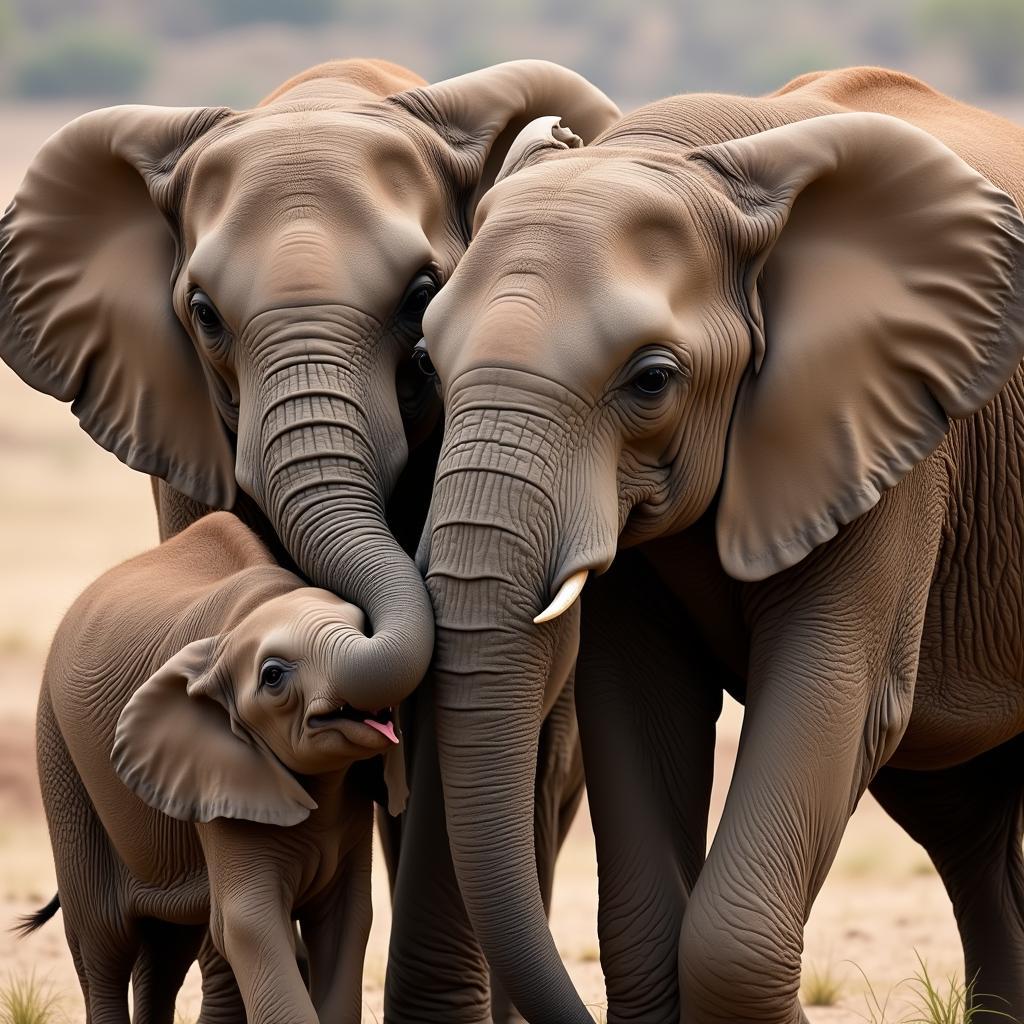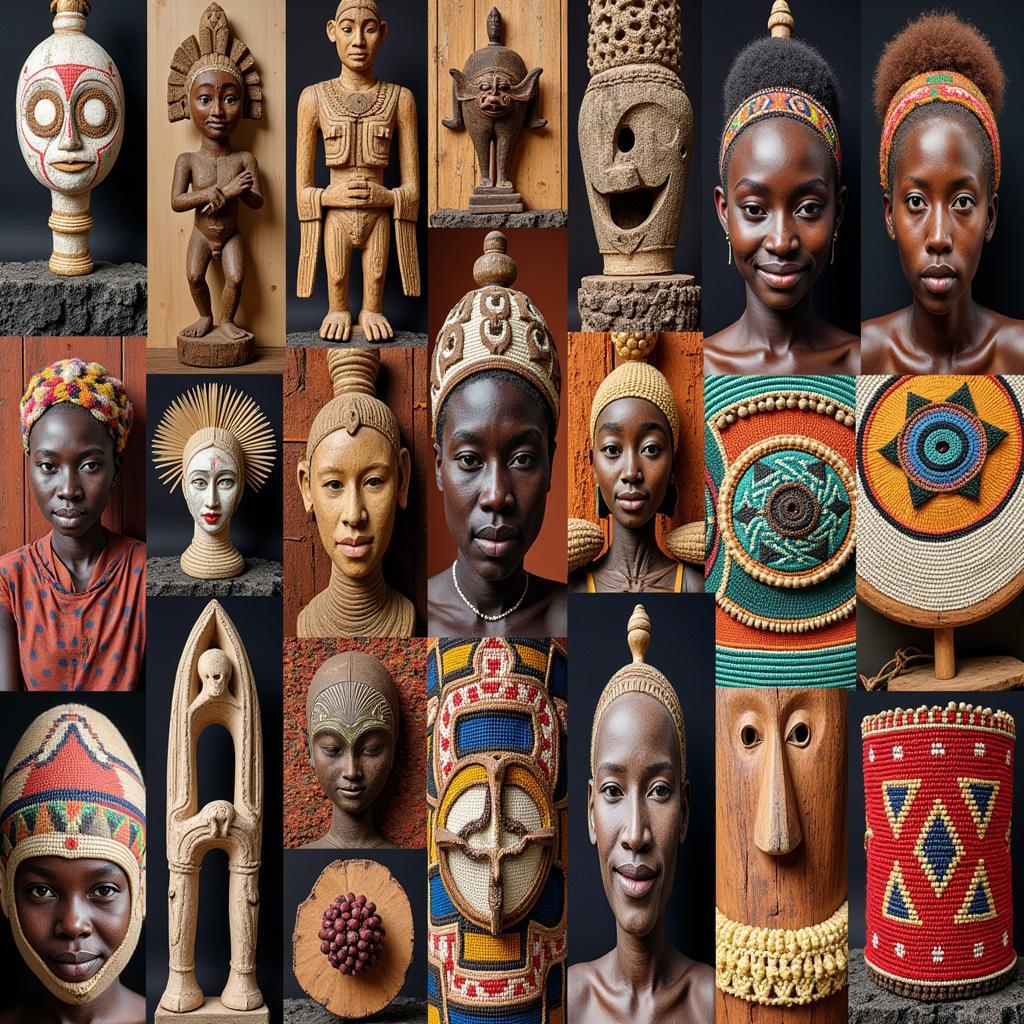The Majestic African Elephant (Loxodonta africana): A Comprehensive Guide
The African elephant (Loxodonta africana) stands as an iconic symbol of Africa’s rich biodiversity. These magnificent creatures, the largest land mammals on Earth, play a vital role in their ecosystems and hold a special place in human culture. This article delves into the fascinating world of the African elephant, exploring their biology, behavior, conservation status, and the challenges they face. african bush elephant classification
Understanding the African Elephant (Loxodonta africana)
African elephants are classified into two subspecies: the savanna elephant (Loxodonta africana africana) and the forest elephant (Loxodonta cyclotis). Savanna elephants are larger and roam the open grasslands, while forest elephants are smaller and adapted to dense forest habitats. Both subspecies share key characteristics, including their large size, distinctive tusks, and complex social structures. They are herbivores, consuming vast quantities of vegetation daily, shaping their environment in the process. Their intelligence is remarkable, demonstrated by their complex communication, problem-solving abilities, and strong family bonds.
The Social Life of the African Elephant
African elephants are highly social animals, living in matriarchal herds led by the oldest and most experienced female. These herds can consist of several related families, forming complex social networks. Communication within the herd is crucial, involving a variety of vocalizations, including rumbles, trumpets, and roars, as well as intricate body language. Young elephants learn from their elders, acquiring essential survival skills and social behaviors. This strong social structure is vital for their survival, providing protection against predators and support in times of hardship.
Threats and Conservation Efforts for the African Elephant
The African elephant faces numerous threats, primarily due to human activities. Poaching for ivory remains a significant challenge, despite international efforts to combat illegal wildlife trade. Habitat loss and fragmentation due to human encroachment and agriculture also pose a major threat. Furthermore, human-wildlife conflict arises as elephants raid crops, leading to retaliatory killings. Conservation efforts are crucial for the survival of these magnificent creatures. These efforts include anti-poaching patrols, community-based conservation programs, and habitat protection initiatives. Raising awareness about the importance of elephant conservation is also essential for ensuring their future. african bush elephant scientific name
 African Elephant Family Unit
African Elephant Family Unit
What is the lifespan of an African elephant?
African elephants typically live for 50 to 70 years in the wild.
How do African elephants communicate?
They communicate through a range of vocalizations like rumbles, trumpets, and roars, and also use intricate body language.
The Importance of the African Elephant in the Ecosystem
African elephants play a critical role in shaping their ecosystems. As herbivores, they influence vegetation patterns, creating pathways and clearings that benefit other animals. Their dung disperses seeds, contributing to forest regeneration. They also dig water holes during dry periods, providing a vital water source for other wildlife. african and asian elephants hybrid
Dr. Anika Mosi, a renowned wildlife biologist specializing in African elephants, emphasizes their significance: “African elephants are keystone species, their presence shaping the landscape and influencing the biodiversity of their habitat. Their loss would have cascading effects on the entire ecosystem.”
What makes the African elephant unique?
Their large size, distinctive tusks, complex social structure, and vital role in the ecosystem make them unique.
Where can I see African elephants in the wild?
Several African countries offer opportunities for elephant viewing, including Kenya, Tanzania, Botswana, and South Africa. african water buffalo
Conclusion
The African elephant (Loxodonta africana) is a magnificent creature that deserves our protection. By understanding the threats they face and supporting conservation efforts, we can help ensure the survival of this iconic species for future generations. The future of the African elephant depends on our collective action. african elephant common name
FAQ
- What is the difference between the African savanna elephant and the African forest elephant?
- What do African elephants eat?
- How are African elephants affected by climate change?
- What are the main threats to African elephant populations?
- How can I support African elephant conservation efforts?
- What is the role of African elephants in their ecosystem?
- How do African elephants communicate with each other?
When you need assistance, please contact us at Phone: +255768904061, Email: kaka.mag@gmail.com or visit our address: Mbarali DC Mawindi, Kangaga, Tanzania. We have a 24/7 customer service team.
You might also be interested in reading about the African Bush Elephant’s diet or learning more about elephant conservation organizations.


